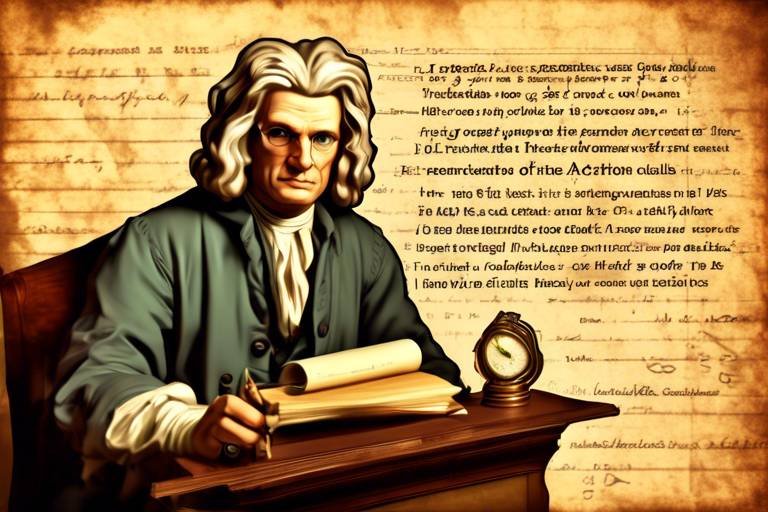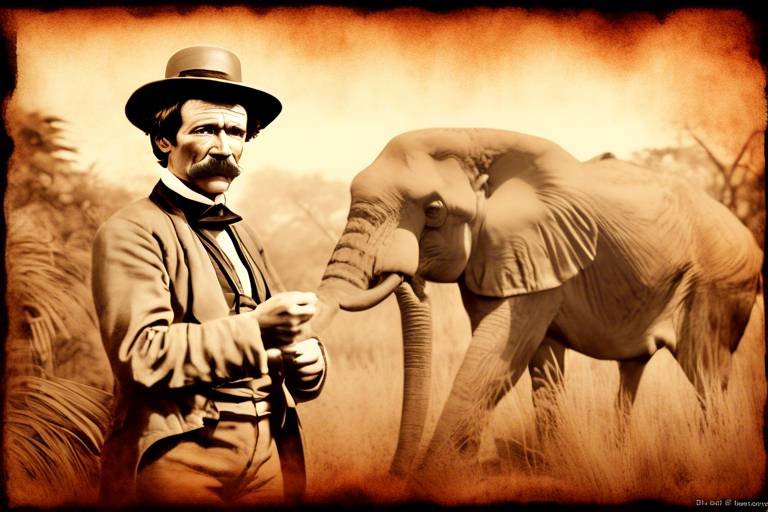Marcus Aurelius: The Philosopher King
Marcus Aurelius, often referred to as the Philosopher King, was a remarkable figure in ancient history whose legacy continues to inspire and captivate generations. This article delves into various aspects of his life, philosophy, leadership, and enduring influence on the world.
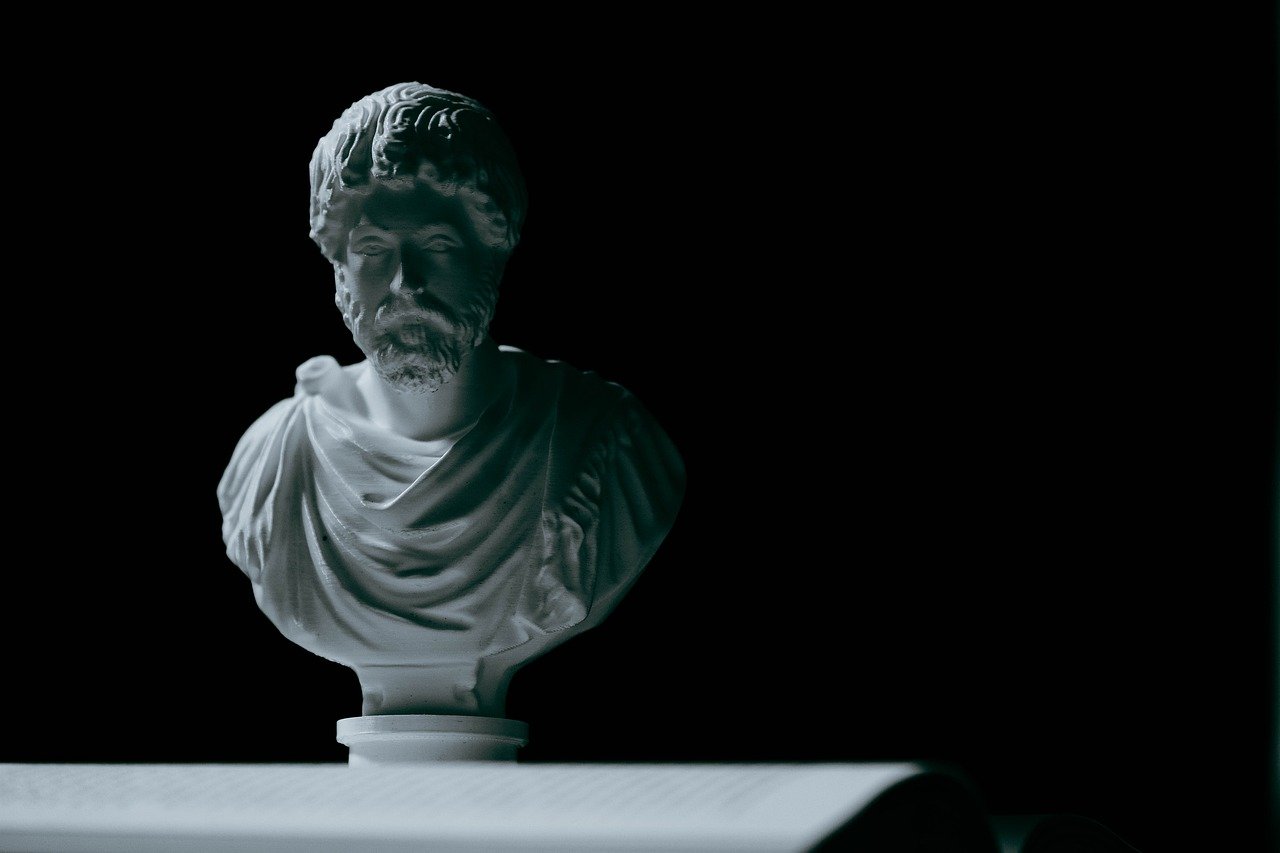
Early Life and Education
Marcus Aurelius, born Marcus Annius Verus, came into the world on April 26, 121 AD, in Rome. His family was of noble descent, and from a young age, he displayed a keen intellect and a thirst for knowledge. Growing up in a privileged environment, Marcus received a comprehensive education, studying rhetoric, philosophy, and law. His early exposure to the teachings of Stoicism, particularly through the works of Epictetus, profoundly influenced his philosophical development.
As a young man, Marcus Aurelius was mentored by prominent philosophers such as Junius Rusticus and Apollonius of Chalcedon, who further shaped his thinking and values. These formative experiences instilled in him a deep sense of duty, integrity, and a commitment to the pursuit of wisdom. Marcus's education was not just about acquiring knowledge but also about cultivating virtues such as resilience, humility, and self-discipline.
His intellectual curiosity led him to explore various schools of thought, but it was the philosophy of Stoicism that resonated most with him. The Stoic emphasis on self-control, rationality, and acceptance of fate deeply influenced Marcus Aurelius' approach to life and leadership. These early lessons in philosophy laid the foundation for his later role as the revered philosopher king of Rome.

Stoic Philosophy
Stoicism, the philosophical school of thought that Marcus Aurelius wholeheartedly embraced, is a profound system emphasizing personal ethics, logic, and self-control. At the core of Stoic philosophy lies the belief in accepting the things we cannot change and focusing on what is within our control. Marcus Aurelius, as a Stoic practitioner, believed in living in harmony with nature and accepting life's inevitable challenges with equanimity.
Central to Stoicism is the concept of virtue, which Marcus Aurelius considered the highest good. He believed that true happiness and fulfillment come from cultivating virtues such as wisdom, justice, courage, and temperance. By embodying these virtues in his daily life and decision-making, Marcus Aurelius aimed to lead by example and inspire others to follow the path of moral excellence.
Furthermore, Stoicism emphasizes the importance of self-discipline and mental resilience in facing adversity. Marcus Aurelius viewed challenges as opportunities for growth and self-improvement, encouraging individuals to develop inner strength and fortitude in the face of life's trials. Through practices such as meditation and self-reflection, he sought to cultivate a calm and rational mind capable of navigating the complexities of existence.
In his famous work Meditations, Marcus Aurelius delves into the essence of Stoic philosophy, offering timeless wisdom on how to live a life of virtue, tranquility, and moral integrity. The reflections and insights contained in Meditations serve as a guide for individuals seeking to align their actions with their values and principles, fostering a sense of inner peace and purpose.
Overall, Stoic philosophy, as exemplified by Marcus Aurelius, provides a profound framework for navigating the challenges of life with grace, dignity, and moral clarity. By embracing the Stoic virtues of wisdom, courage, and self-control, individuals can cultivate a resilient mindset and a deep sense of inner peace amidst the tumultuous currents of existence.
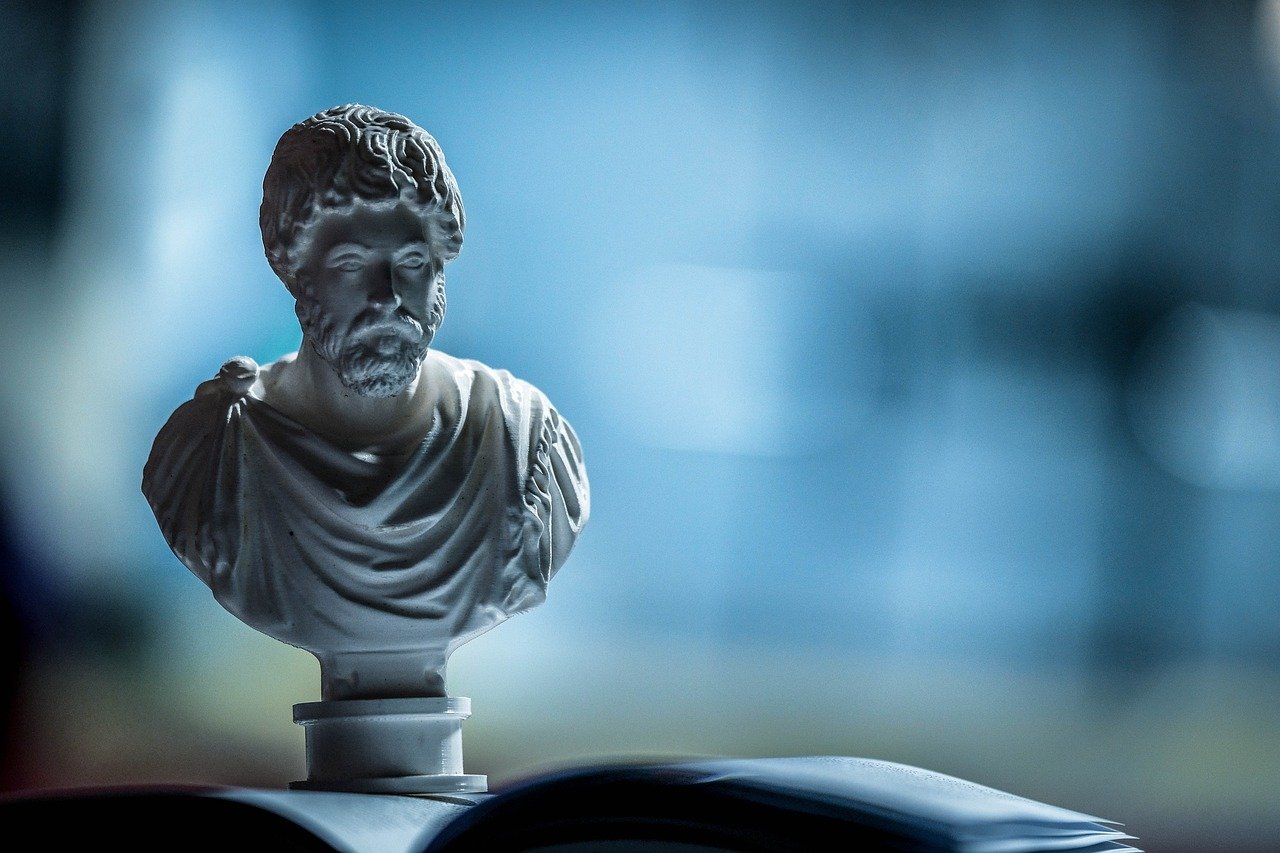
Meditations: A Reflection
Marcus Aurelius' Meditations stands as a timeless masterpiece of philosophical thought and introspection. In this collection of personal writings, Marcus Aurelius delves into the depths of his own mind, offering profound insights into the nature of existence, virtue, and the human experience. Through his reflections, he contemplates the transient nature of life, the importance of living in accordance with reason and virtue, and the acceptance of the inevitable challenges and adversities that one may face.
One of the central themes of Meditations is the concept of stoicism, a philosophy that emphasizes the development of self-control, resilience, and inner tranquility in the face of external events. Marcus Aurelius encourages readers to cultivate a sense of detachment from worldly desires and to focus on cultivating a virtuous character through self-examination and self-improvement.
Through his writings, Marcus Aurelius invites readers to engage in a process of introspection and self-discovery, urging individuals to question their assumptions, values, and beliefs in order to live a life of authenticity and integrity. He emphasizes the importance of aligning one's actions with one's principles and values, and the need to cultivate a sense of humility and gratitude in the face of life's uncertainties.
Meditations serves as a guide to navigating the complexities of human existence, offering practical wisdom and philosophical insights that remain relevant and applicable in the modern world. Marcus Aurelius' reflections on the nature of virtue, ethics, and moral responsibility continue to inspire individuals seeking guidance on how to lead a meaningful and fulfilling life.
As readers delve into the pages of Meditations, they are confronted with profound questions about the nature of reality, the pursuit of wisdom, and the cultivation of inner peace. Marcus Aurelius' timeless reflections invite readers to embark on a journey of self-discovery and personal growth, encouraging them to embrace the challenges of life with courage, resilience, and a steadfast commitment to living a life of virtue and wisdom.

Meditations
Known for his wisdom and philosophical insights, Marcus Aurelius was not only an emperor of Rome but also a revered thinker whose legacy continues to inspire generations. In this article, we will delve into various aspects of his life, philosophy, leadership, and enduring influence on the world.
One of Marcus Aurelius' most famous works, Meditations, offers a glimpse into the mind of the philosopher king. Written as a series of personal reflections, the book explores themes of virtue, resilience, and the transient nature of life. In Meditations, Marcus Aurelius contemplates the Stoic principles he lived by, providing readers with timeless wisdom on how to navigate the challenges of existence.
Through introspective musings, Marcus Aurelius encourages readers to cultivate inner strength, practice self-discipline, and embrace the inevitability of change. His meditations serve as a guide for achieving tranquility amidst chaos, fostering a mindset of acceptance and equanimity in the face of adversity.
Within Meditations, Marcus Aurelius emphasizes the importance of living in accordance with nature, aligning one's actions with reason and virtue. He advocates for self-examination, moral rectitude, and the pursuit of excellence in thought and deed. By engaging in philosophical reflection, individuals can attain a deeper understanding of themselves and the world around them, leading to a life of purpose and fulfillment.
Furthermore, Meditations underscores the interconnectedness of all beings and the impermanence of material possessions. Marcus Aurelius reminds readers of the fleeting nature of earthly pursuits and encourages them to focus on cultivating inner virtues that endure beyond the physical realm. By practicing mindfulness and gratitude, individuals can transcend the transient and embrace the eternal aspects of the human spirit.
In essence, Meditations serves as a timeless reservoir of philosophical insights, offering solace, guidance, and contemplation to those seeking wisdom in the complexities of life. Marcus Aurelius' reflections continue to resonate with readers across the ages, inviting them to embark on a journey of self-discovery, growth, and inner transformation.
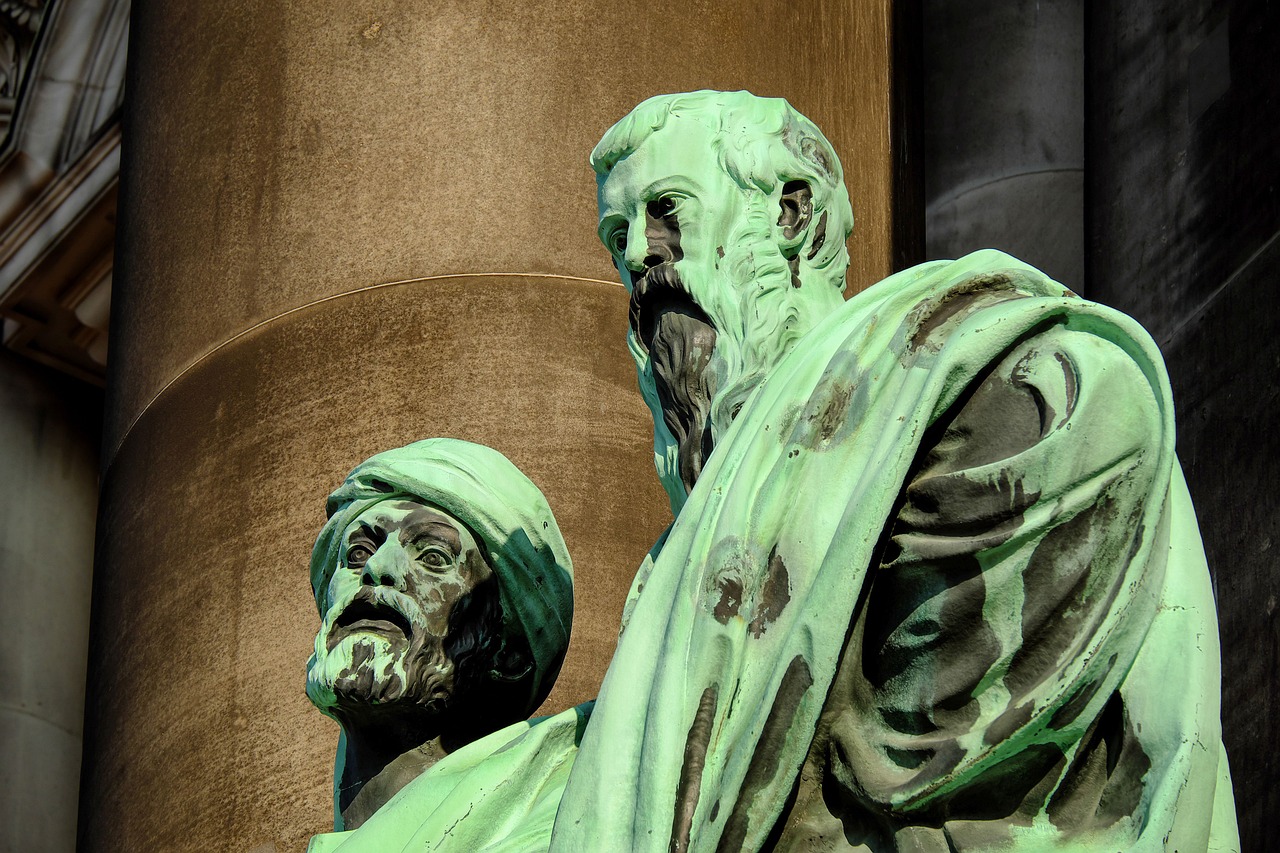
and its enduring impact on philosophy and personal development.
Known as one of the most revered figures in ancient history, Marcus Aurelius was not only an emperor but also a philosopher whose wisdom continues to inspire generations. In this article, we will delve into the life, philosophy, and legacy of Marcus Aurelius, exploring how his teachings have stood the test of time.
Marcus Aurelius was born in 121 AD in Rome to a prominent family. His upbringing was marked by a strong emphasis on education and philosophy, laying the foundation for his future as a philosopher king. From a young age, he showed a keen interest in Stoic philosophy, which would later shape his worldview and leadership style.
Stoicism, with its focus on virtue, resilience, and acceptance of fate, resonated deeply with Marcus Aurelius. He embraced the Stoic principles of living in accordance with nature, practicing self-discipline, and maintaining inner tranquility amidst external chaos. These beliefs guided his actions as emperor, earning him the title of the Philosopher King.
One of Marcus Aurelius' most enduring legacies is his collection of personal writings known as Meditations. In this reflective work, he contemplates the nature of existence, the importance of virtue, and the transience of life. Meditations serves as a timeless guide for personal development, offering insights into the human experience and the pursuit of inner peace.
As emperor of Rome, Marcus Aurelius ruled with a unique blend of wisdom and compassion. His philosophical outlook influenced his governance, leading him to prioritize the well-being of his subjects and the greater good of the empire. He faced challenges with resilience and integrity, setting a high standard for leadership.
The legacy of Marcus Aurelius endures through his philosophical teachings and exemplary leadership. His emphasis on virtue, ethics, and moral integrity continues to inspire leaders and thinkers across the globe. His reign is remembered as a golden age of Roman history, marked by peace and prosperity.
Despite his philosophical pursuits, Marcus Aurelius also faced the harsh realities of warfare during the Marcomannic Wars. He led his troops with courage and strategic acumen, demonstrating the intersection of military leadership and philosophical principles. His experiences in war further shaped his philosophical beliefs.
Central to Marcus Aurelius' philosophy was the importance of personal virtue and ethical conduct. He believed in living a life of integrity, honesty, and humility, setting an example for others to follow. His writings emphasize the cultivation of moral character and the pursuit of excellence in all endeavors.
Marcus Aurelius' relationships with his family, advisors, and contemporaries played a crucial role in shaping his philosophical ideals. He valued loyalty, trust, and mutual respect in his interactions, fostering a sense of camaraderie and unity. These relationships provided him with support and guidance in times of need.
Even in the modern world, the teachings of Marcus Aurelius remain relevant and impactful. His insights on resilience, self-mastery, and ethical leadership offer valuable lessons for navigating the complexities of today's society. By applying his principles to our personal and professional lives, we can strive for greater fulfillment and success.

Leadership and Governance
Known for his wisdom and leadership, Marcus Aurelius, the Roman emperor and Stoic philosopher, left a profound impact on history with his philosophical teachings and governance. In this article, we will delve into various aspects of his life, philosophy, leadership style, and enduring legacy.
When it comes to leadership and governance, Marcus Aurelius exemplified the qualities of a true philosopher king. He ruled the vast Roman Empire with a unique blend of wisdom, compassion, and philosophical insight. Instead of wielding power for personal gain, Marcus Aurelius saw his role as emperor as a duty to serve and protect his people.
His governance was guided by Stoic principles, emphasizing rationality, justice, and moral integrity. Marcus Aurelius believed in leading by example, setting high ethical standards for himself and expecting the same from those in his administration. His commitment to fairness and equity in decision-making earned him respect and admiration from both his subjects and historians.
Unlike some rulers of his time, Marcus Aurelius prioritized the well-being of his citizens over conquest and glory. He understood the importance of fostering stability and prosperity within the empire, implementing policies that aimed to improve the lives of ordinary Romans. His emphasis on good governance and social welfare set him apart as a leader who truly cared for the welfare of his people.
Moreover, Marcus Aurelius faced numerous challenges during his reign, including external threats and internal strife. Despite the pressures of ruling a vast empire, he remained steadfast in his commitment to upholding justice and maintaining peace. His ability to navigate complex political situations with wisdom and foresight solidified his reputation as a just and capable ruler.
Overall, Marcus Aurelius' approach to leadership and governance serves as a timeless example of ethical leadership and responsible governance. His legacy continues to inspire leaders around the world to prioritize the well-being of their people and lead with integrity and compassion.
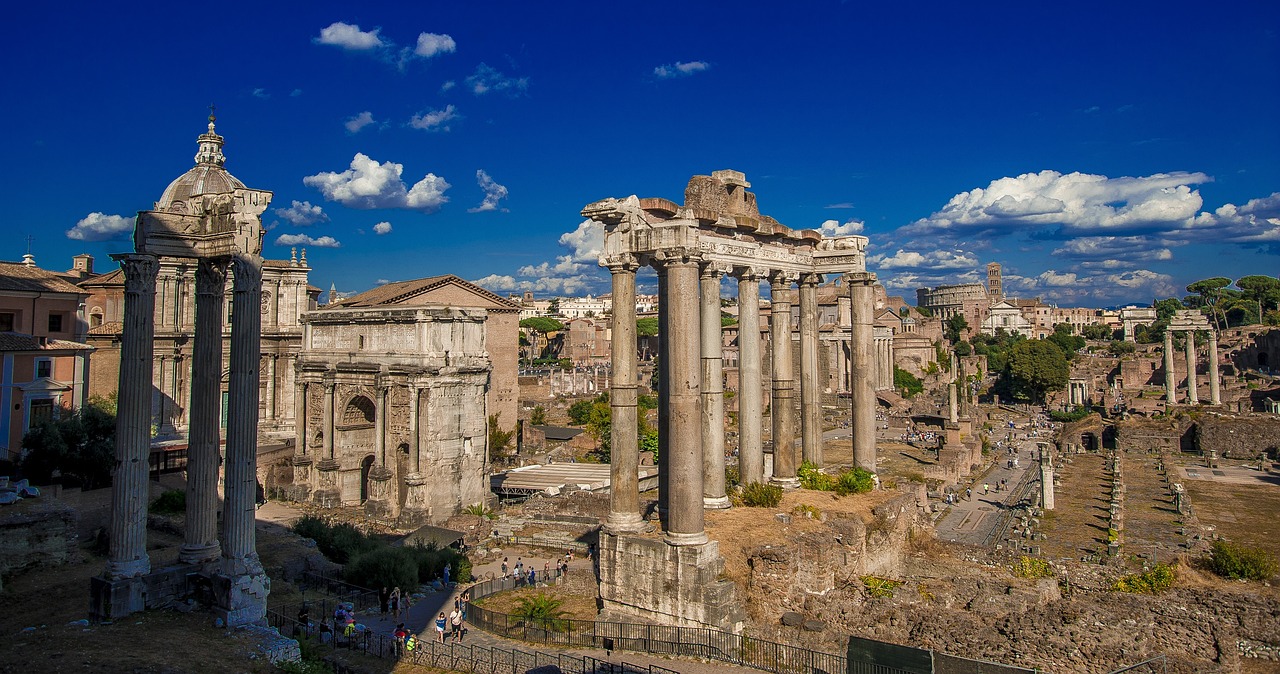
Legacy and Influence
Known for his wisdom, leadership, and philosophical insights, Marcus Aurelius stands out as one of the most revered figures in history. This article delves into various aspects of his life, philosophy, and legacy, shedding light on the enduring influence of the philosopher king.
As a philosopher king, Marcus Aurelius left behind a profound legacy that continues to resonate through the annals of time. His stoic philosophy, encapsulated in the Meditations, serves as a guiding light for individuals seeking wisdom and inner peace. The principles of virtue, resilience, and moral integrity that he championed have inspired generations of thinkers, leaders, and ordinary individuals striving for personal growth.
Moreover, Marcus Aurelius' emphasis on ethical governance and compassionate leadership has set a benchmark for rulers throughout history. His commitment to serving the people with wisdom and empathy has earned him a place of reverence not only in Roman history but also in the broader context of leadership studies.
The philosopher king's influence extends beyond his philosophical teachings and governance style. His legacy in warfare is equally noteworthy, as Marcus Aurelius demonstrated the rare combination of a warrior and a philosopher during the Marcomannic Wars. His ability to integrate military strategy with moral principles has been a subject of admiration and study for military leaders worldwide.
Furthermore, Marcus Aurelius' personal relationships and interactions with his family and advisors offer valuable insights into his character and values. His ability to balance the demands of leadership with familial responsibilities showcases a holistic approach to life that many can learn from.
In today's fast-paced and often chaotic world, Marcus Aurelius' teachings on virtue, resilience, and self-mastery continue to offer timeless wisdom. His emphasis on living in accordance with nature, accepting adversity with grace, and cultivating inner strength resonates with individuals navigating the complexities of modern life.
Ultimately, Marcus Aurelius' legacy and influence serve as a testament to the enduring power of philosophy in shaping individuals and societies. His profound insights into human nature, ethics, and leadership continue to inspire and guide those who seek a deeper understanding of themselves and the world around them.
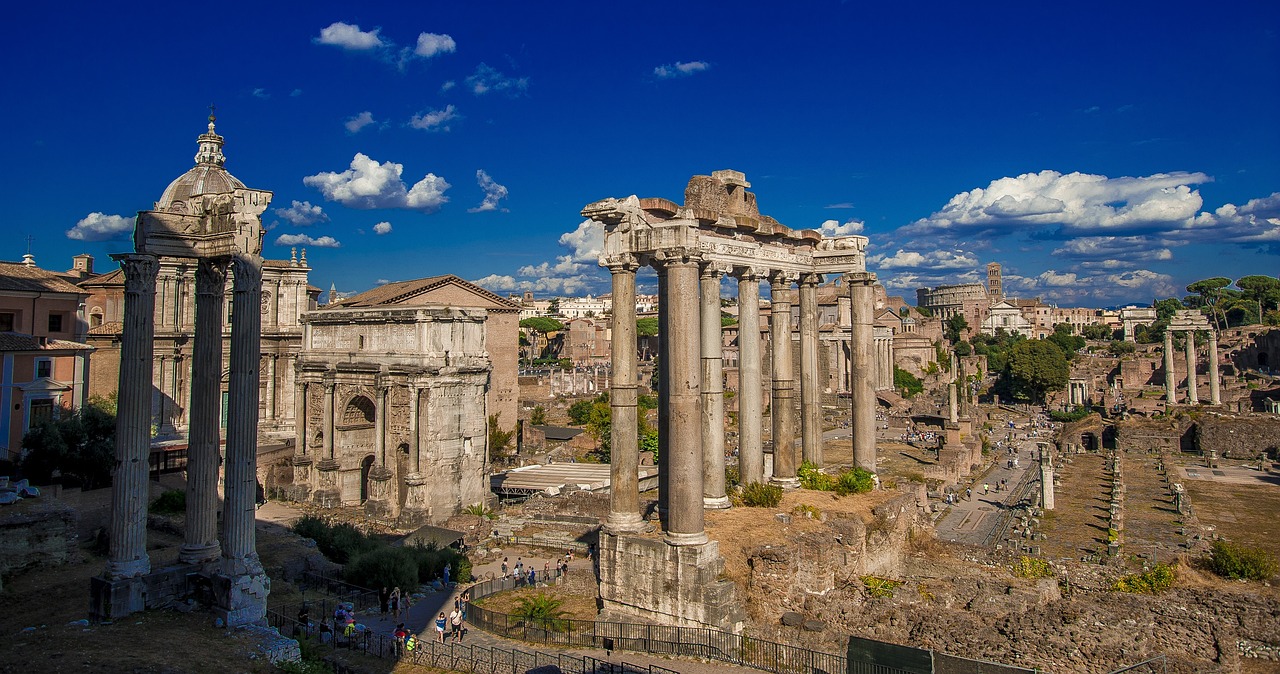
Warfare and Philosophy
Warfare and philosophy intertwined in the life of Marcus Aurelius, the philosopher king of ancient Rome. As a Stoic philosopher and a capable military leader, Marcus Aurelius faced the challenging task of balancing his philosophical beliefs with the demands of warfare. During the Marcomannic Wars, Marcus Aurelius demonstrated not only his strategic acumen on the battlefield but also his unwavering commitment to Stoic principles in the face of adversity.
One of the key aspects that defined Marcus Aurelius' approach to warfare was his belief in the importance of maintaining inner tranquility and moral integrity even in the midst of conflict. The Stoic philosophy of accepting fate and focusing on what is within one's control resonated deeply with Marcus Aurelius, guiding his decisions on the battlefield and shaping his leadership style.
Despite the chaos and violence of war, Marcus Aurelius emphasized the need for rationality, self-discipline, and ethical conduct among his troops. He viewed military campaigns not only as a means to expand the empire but also as opportunities to practice virtue and uphold moral values. This unique blend of military prowess and philosophical wisdom set Marcus Aurelius apart as a leader who led with both strength and compassion.
Furthermore, Marcus Aurelius' reflections on the transience of life and the inevitability of death, as captured in his work Meditations, provided him with a profound sense of perspective during times of war. His contemplation of the interconnectedness of all things and the impermanence of earthly pursuits allowed him to approach warfare with a sense of detachment, focusing instead on the greater good and the well-being of his people.
Through his actions on the battlefield and his philosophical writings, Marcus Aurelius exemplified the harmonious integration of warfare and philosophy. His legacy as a philosopher king who embodied wisdom, virtue, and resilience continues to inspire leaders and thinkers to this day, showcasing the enduring relevance of his teachings in times of both peace and conflict.
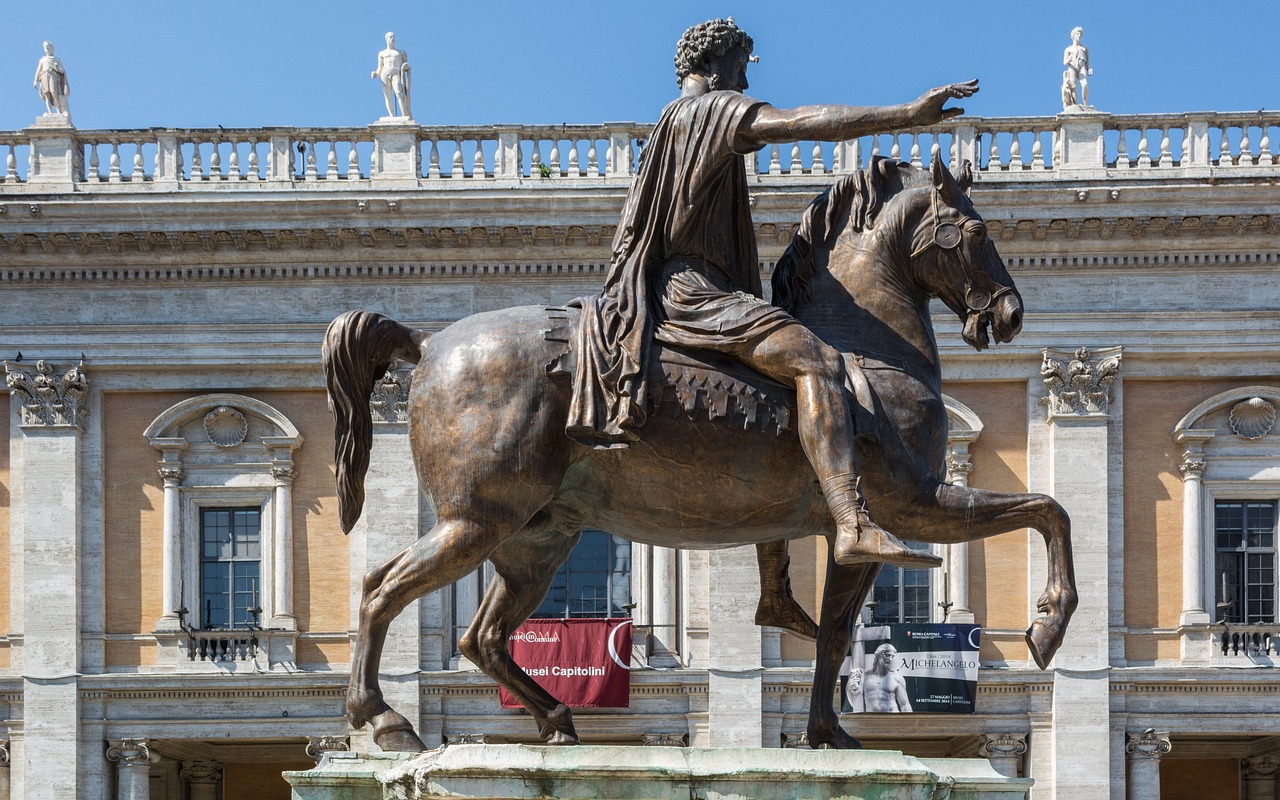
Personal Virtue and Ethics
Personal virtue and ethics were central tenets in Marcus Aurelius' philosophical teachings and actions. The Emperor placed great importance on cultivating moral integrity and ethical behavior in both his personal life and his governance of the Roman Empire. For Marcus Aurelius, virtue was not just a theoretical concept but a practical guide for living a meaningful and fulfilling life. He believed that true happiness and fulfillment could only be achieved through the practice of virtue and adherence to ethical principles.
One of the key virtues Marcus Aurelius emphasized was **stoicism**, which taught individuals to remain calm and rational in the face of adversity. This philosophy guided his decision-making process and enabled him to navigate the complexities of ruling an empire with wisdom and composure. By embodying stoic principles, Marcus Aurelius set an example for his subjects and demonstrated the importance of personal virtue in leadership.
Moreover, Marcus Aurelius believed in the **importance of self-reflection** and introspection as tools for cultivating personal virtue. His work *Meditations* is a testament to his commitment to continuous self-improvement and moral growth. Through introspective practices, Marcus Aurelius sought to align his thoughts and actions with his ethical beliefs, demonstrating his dedication to living a life of integrity and virtue.
When faced with moral dilemmas or ethical challenges, Marcus Aurelius relied on his **inner moral compass** to guide his decisions. He understood that ethical behavior was not always easy but believed that staying true to one's principles was essential for leading a virtuous life. By upholding ethical standards in both his public and private affairs, Marcus Aurelius earned a reputation for **integrity** and **honesty**.
Furthermore, Marcus Aurelius valued **fairness** and **justice** in his interactions with others, recognizing the importance of treating all individuals with respect and dignity. His commitment to ethical conduct extended to his relationships with family members, advisors, and subjects, fostering a sense of trust and loyalty among those around him. By exemplifying ethical leadership, Marcus Aurelius inspired others to uphold similar values and principles in their own lives.
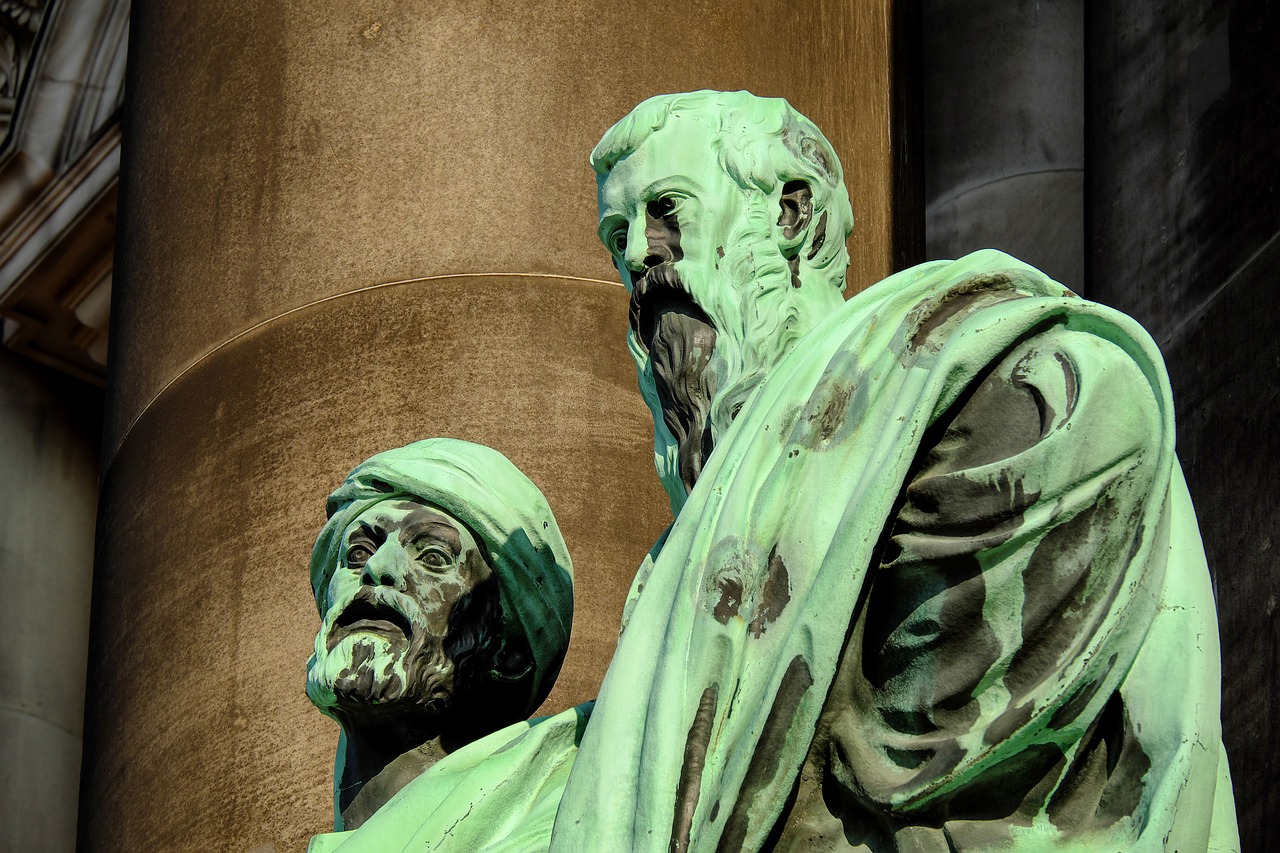
Relationships and Family
When delving into the life of Marcus Aurelius, one cannot overlook the profound impact of his relationships and family dynamics on his philosophical ideals and leadership style. As a man of great wisdom and introspection, Marcus Aurelius valued the bonds he shared with his family, advisors, and contemporaries, recognizing the significance of human connections in shaping one's character and values.
At the core of Marcus Aurelius' philosophy was the concept of interconnectedness, emphasizing the importance of fostering harmonious relationships built on trust, respect, and mutual understanding. His interactions with his wife, Faustina, his son, Commodus, and his trusted advisor, Cassius Dio, offer insights into his commitment to maintaining strong familial and professional ties despite the challenges of his reign.
Within the Roman court, Marcus Aurelius navigated intricate political landscapes and familial obligations with grace and integrity, seeking counsel from those he trusted and cherishing moments of camaraderie amidst the demands of governance. His ability to balance the complexities of leadership with genuine care for those around him exemplifies his commitment to ethical conduct and compassionate leadership.
Moreover, Marcus Aurelius' philosophical teachings on virtue and ethics were not confined to theoretical discourse but were deeply intertwined with his personal relationships and familial responsibilities. By embodying the values he preached, Marcus Aurelius set a powerful example for his peers and descendants, inspiring a legacy of ethical leadership and moral integrity that transcended his time.
In essence, Marcus Aurelius' relationships and family connections served as both a source of strength and a moral compass, guiding his actions and decisions as a philosopher king. His ability to cultivate meaningful relationships based on shared values and mutual respect underscores the timeless importance of human connection in the pursuit of wisdom and virtuous living.
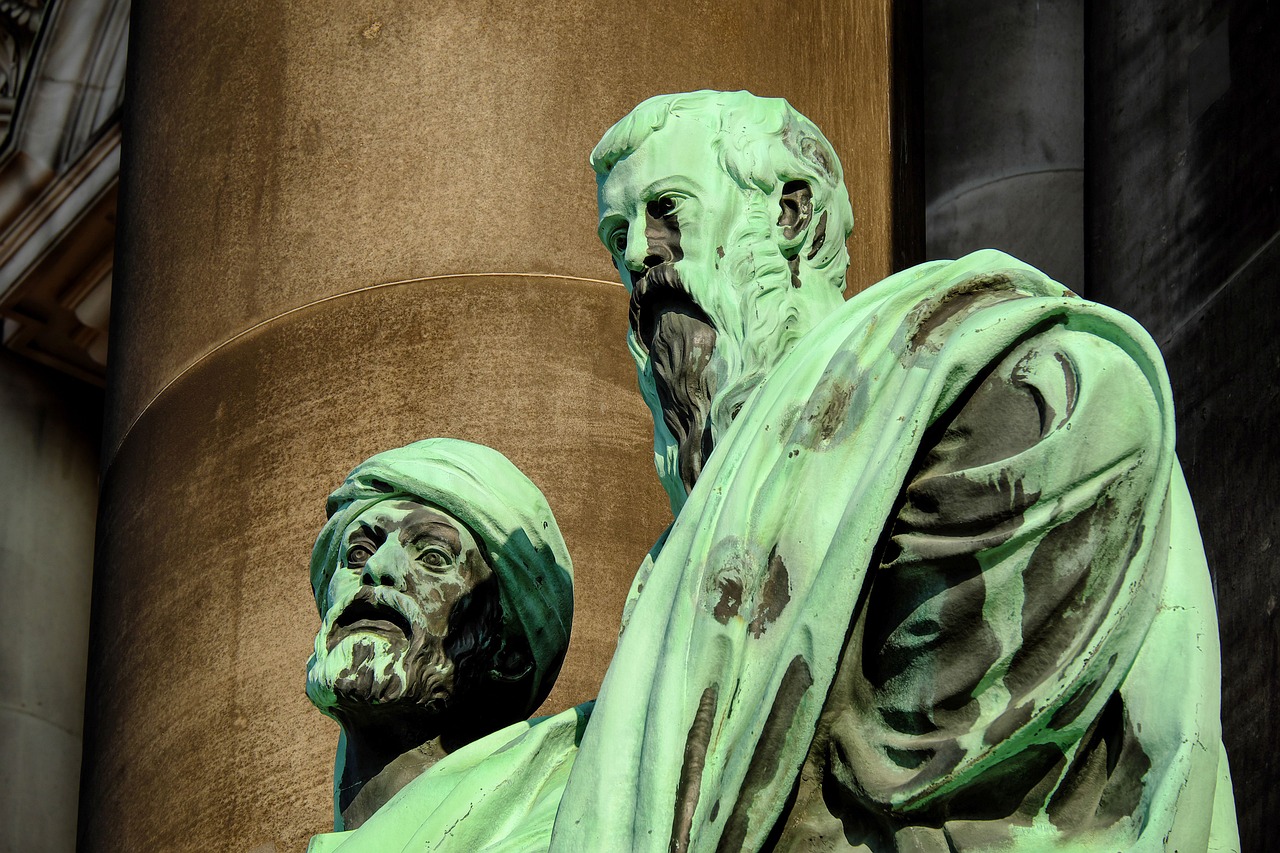
Lasting Wisdom for Modern Times
Reflecting on the enduring wisdom of Marcus Aurelius in modern times unveils a treasure trove of philosophical insights and leadership principles that transcend centuries. His emphasis on virtue, resilience, and self-discipline resonates profoundly in today's fast-paced and chaotic world. In a society often plagued by distractions and instant gratification, Marcus Aurelius' teachings serve as a beacon of stoic wisdom guiding individuals towards inner peace and moral clarity.
Embracing the concept of living in the present moment and focusing on what is within our control, rather than being consumed by external circumstances, is a cornerstone of Marcus Aurelius' philosophy. In a world inundated with information overload and constant connectivity, the practice of mindfulness advocated by the philosopher king offers a path to mental clarity and emotional resilience.
Moreover, Marcus Aurelius' emphasis on ethical conduct and integrity in both personal and professional life serves as a timeless reminder of the importance of upholding moral values even in the face of adversity. His unwavering commitment to virtue ethics inspires individuals to lead with compassion, wisdom, and humility, fostering a culture of integrity and authenticity in leadership.
When navigating the complexities of modern society, the philosophical insights of Marcus Aurelius offer a guiding light, reminding us of the transient nature of external circumstances and the enduring power of inner strength and resilience. In a world characterized by constant change and uncertainty, the stoic wisdom of Marcus Aurelius provides a sturdy foundation for personal growth and self-mastery.
Frequently Asked Questions
- What were Marcus Aurelius' main contributions to philosophy?
Marcus Aurelius was a prominent figure in Stoic philosophy, emphasizing principles such as virtue, resilience, and acceptance of the natural order. His work "Meditations" is a testament to his philosophical reflections and insights on leading a meaningful life.
- How did Marcus Aurelius balance his role as a philosopher and emperor?
Marcus Aurelius believed in applying philosophical principles to his governance, focusing on justice, rationality, and self-discipline. He strived to embody Stoic ideals while making practical decisions for the Roman Empire.
- What impact did Marcus Aurelius have on later generations of leaders and thinkers?
Marcus Aurelius' legacy as a philosopher king inspired many future leaders, including prominent figures like Frederick the Great and George Washington. His philosophical teachings continue to influence ethical leadership and personal development today.
- How did Marcus Aurelius view the concept of personal virtue and ethics?
Personal virtue and ethics were central to Marcus Aurelius' Stoic philosophy. He believed in living a life of integrity, moral excellence, and rationality, emphasizing the importance of self-awareness and ethical conduct in all aspects of life.
- What lessons from Marcus Aurelius can be applied to modern life?
Marcus Aurelius' teachings on resilience, mindfulness, and ethical leadership offer valuable insights for navigating the complexities of modern life. His emphasis on self-improvement, empathy, and virtue remains relevant in personal and professional contexts.







